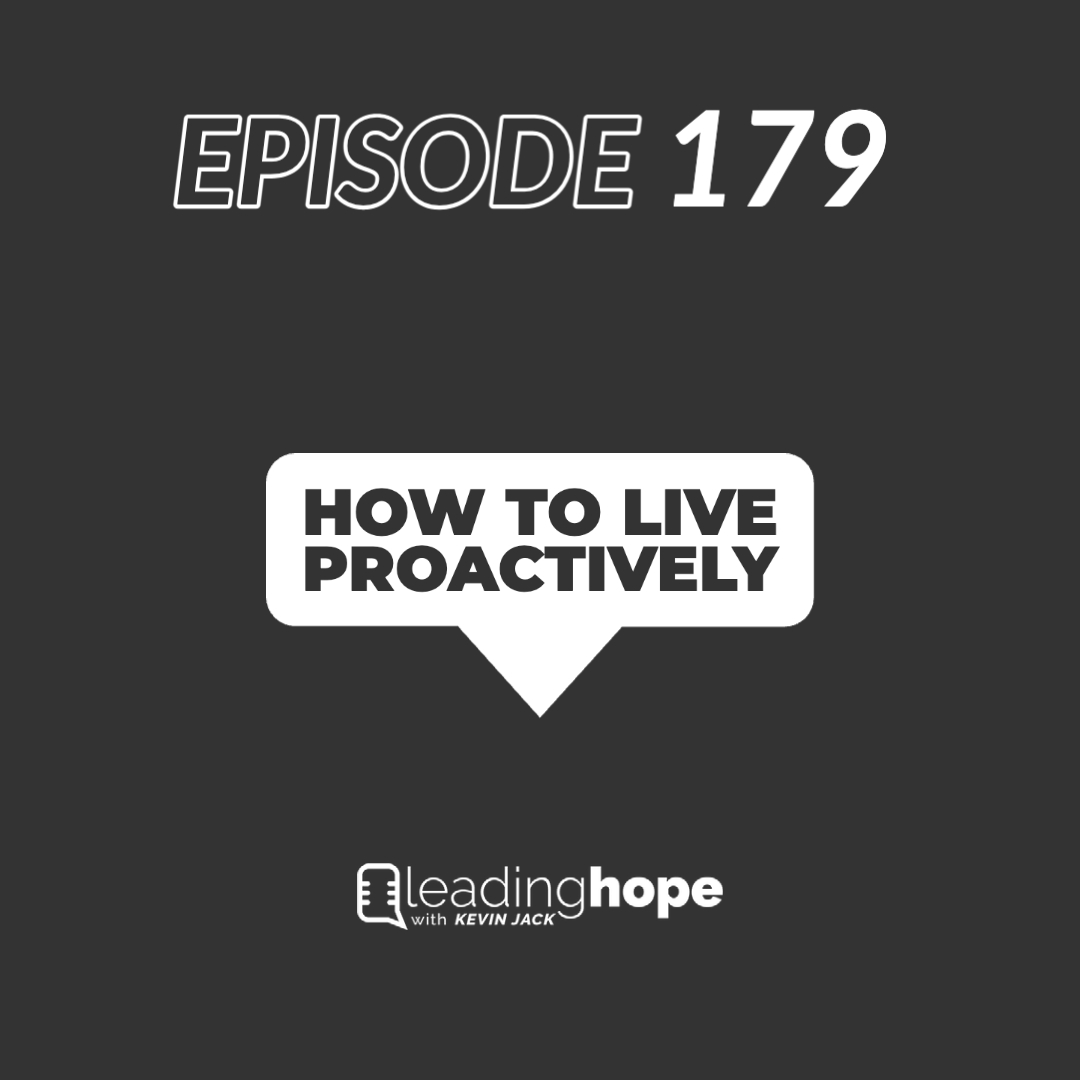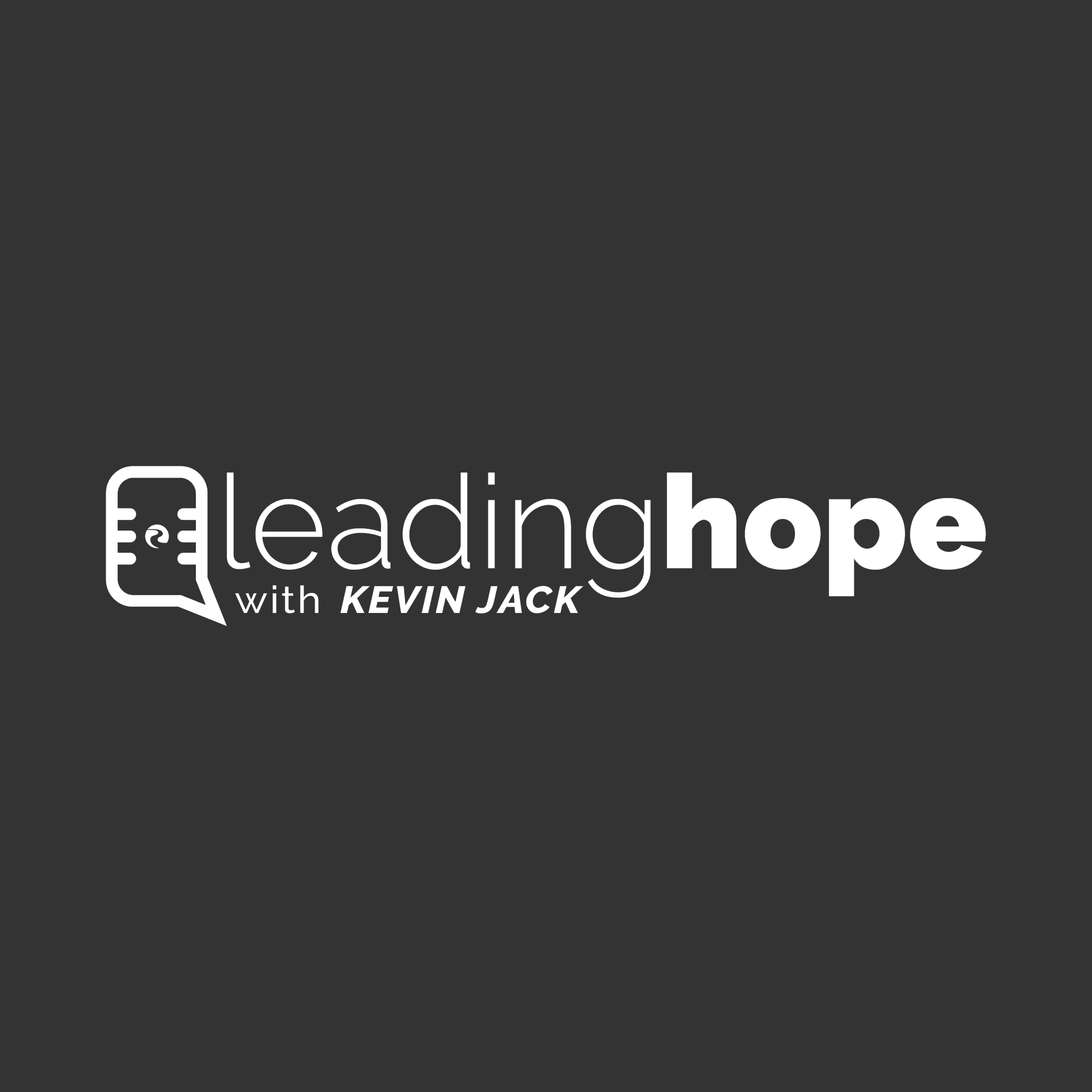Episode 179
How to Live Proactively
May 17

Leader Notes
How to Live Pro-Actively
-
The first habit of highly effective people from Stephen Covey is to live “proactively”. The truth is most of us live our lives in a reactive state, stuck in a constant response to the issues that come our way where we find ourselves playing defense more than offense.
-
Main Idea: Leaders who lead themselves view themselves as a resource to be deployed, and they properly deploy that resource to play offense with their lives.
-
Jack Welch & Jeff Immelt on “couldn’t connect actions between their work & the bottom line”
Leaders who play offense live according to self-set, pre-determined priorities.
-
Before you know what you should put your effort towards, you need to know what your priorities are.
-
My constant frustration with people who don’t grasp the difference between activities that are good, and outcomes that are best.
-
For most us we live in a state of creative avoidance: “Creative avoidance is unconsciously filling the day with menial work to where we end up getting busy just being busy!” Rory.
-
2 Illustrations on Living according to self-set, pre-determined priorities.
-
Big Rocks Metaphor:
-
Key to juggling life is to know some balls are glass and some are rubber.
-
-
Assignment: What can you not “not” accomplish?
Leaders who play offense effectively deploy their time, and especially their energy, towards their priorities.
-
“The difference between good leadership and great leadership is time well spent.” Jim Collins
-
Level 1: Time
-
If you don’t schedule your priorities, everyone and everything else around you will. Harkavy\
-
The first step toward change is to refuse to be deployed by others and to choose to deploy yourself. Bennis
-
Michael Hyatt’s “Ideal Week”
-
-
Level 2: Energy
-
Dan Pink research on chronotypes: Peak, Trough, Recovery
-
Lark: Early morning: Analytical Work; Afternoon: Trough, Administrative or routine garbage; Evening: Creative Work.
-
Owl: Afternoon: Analytical Work; Evening: Creative; Early: Administrative.
-
Third Bird: 3rd Set
-
“All times of the day are not created equal” Dan Pink
-
-
If you give time to your priorities, but it’s not your best time, it won’t happen.
-
-
Assignment: Map out when your energy is best and worst, and begin to schedule you priorities in your best time?
Leaders who play offense deploy their strengths towards their priorities, and effectively stay out of their weaknesses.
-
Presidents don’t do great things by dwelling on their limitations, but by focusing on their possibilities. Kissinger
-
Compounds
-
Falls back to the first episode: Self-Awareness of your strengths.
-
Falls back to this episode: To operate in your strengths without understanding your priorities is worthless.
-
-
As you are scheduling your time/deploying your energy:
-
What is the unique contribution I can make to our priorities?
-
Is our team built in a way that I won’t have to operate in my weaknesses?
-
If you don’t staff around your strengths and toward your weaknesses you will never operate in your strengths.
-
-
Waivers
-
We must delegate but never surrender decisions. Sample
-

Leading Hope with Kevin Jack
Your influence will lead people somewhere, lead them towards Hope.



Leave A Comment